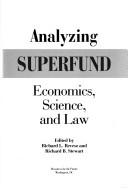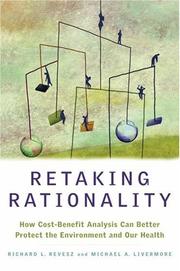| Listing 1 - 10 of 12 | << page >> |
Sort by
|
Book
ISBN: 0195091523 9780195091526 Year: 1997 Publisher: New York: Oxford university press,
Abstract | Keywords | Export | Availability | Bookmark
 Loading...
Loading...Choose an application
- Reference Manager
- EndNote
- RefWorks (Direct export to RefWorks)
Book
Year: 2007 Publisher: Cambridge, Mass. National Bureau of Economic Research
Abstract | Keywords | Export | Availability | Bookmark
 Loading...
Loading...Choose an application
- Reference Manager
- EndNote
- RefWorks (Direct export to RefWorks)
Book
Year: 1997 Publisher: New York ; Oxford Oxford University Press
Abstract | Keywords | Export | Availability | Bookmark
 Loading...
Loading...Choose an application
- Reference Manager
- EndNote
- RefWorks (Direct export to RefWorks)
Book
ISBN: 0197559530 0190233125 9780190233129 0190233117 0190233133 9780190233112 Year: 2016 Publisher: Oxford: Oxford university press,
Abstract | Keywords | Export | Availability | Bookmark
 Loading...
Loading...Choose an application
- Reference Manager
- EndNote
- RefWorks (Direct export to RefWorks)
Since the beginning of the Obama Administration, conservative politicians have railed against the President's "War on Coal." As evidence of this supposed siege, they point to a series of rules issued by the Environmental Protection Agency that aim to slash air pollution from the nation's power sector . Because coal produces far more pollution than any other major energy source, these rules are expected to further reduce its already shrinking share of the electricity market in favor of cleaner options like natural gas and solar power. But the EPA's policies are hardly the "unprecedented regulatory assault " that opponents make them out to be. Instead, they are merely the latest chapter in a multi-decade struggle to overcome a tragic flaw in our nation's most important environmental law. In 1970, Congress passed the Clean Air Act, which had the remarkably ambitious goal of eliminating essentially all air pollution that posed a threat to public health or welfare. But there was a problem: for some of the most common pollutants, Congress empowered the EPA to set emission limits only for newly constructed industrial facilities, most notably power plants. Existing plants, by contrast, would be largely exempt from direct federal regulation-a regulatory practice known as "grandfathering." What lawmakers didn't anticipate was that imposing costly requirements on new plants while giving existing ones a pass would simply encourage those old plants to stay in business much longer than originally planned. Since 1970, the core problems of U.S. environmental policy have flowed inexorably from the smokestacks of these coal-fired clunkers, which continue to pollute at far higher rates than their younger peers. In Struggling for Air, Richard L. Revesz and Jack Lienke chronicle the political compromises that gave rise to grandfathering, its deadly consequences, and the repeated attempts-by presidential administrations of both parties-to make things right.
Coal-fired power plants --- Energy policy --- Coal-burning power plants --- Coal-fired power stations --- Power-plants --- Environmental aspects --- Government policy
Digital
Abstract | Keywords | Export | Availability | Bookmark
 Loading...
Loading...Choose an application
- Reference Manager
- EndNote
- RefWorks (Direct export to RefWorks)

ISBN: 0915707756 Year: 1995 Publisher: Washington, DC Resources for the Future
Abstract | Keywords | Export | Availability | Bookmark
 Loading...
Loading...Choose an application
- Reference Manager
- EndNote
- RefWorks (Direct export to RefWorks)
Book
ISBN: 9780199934386 019993438X Year: 2013 Publisher: New York: Oxford university press,
Abstract | Keywords | Export | Availability | Bookmark
 Loading...
Loading...Choose an application
- Reference Manager
- EndNote
- RefWorks (Direct export to RefWorks)
Cost effectiveness --- Environmental policy --- Economic development --- Benefit cost analysis --- Capital output ratios --- Cost benefit analysis --- Costs, Industrial --- Engineering economy --- Value analysis (Cost control) --- Etats-Unis --- Brésil --- Chine --- Inde --- Afrique du Sud --- Taiwan --- Mexique --- Singapour --- Panama --- Liberia --- Thaïlande --- Environmental policy - Developing countries --- Economic development - Developing countries
Book
ISBN: 0199934398 0199324115 9780199934393 Year: 2013 Publisher: Oxford ; New York : Oxford University Press,
Abstract | Keywords | Export | Availability | Bookmark
 Loading...
Loading...Choose an application
- Reference Manager
- EndNote
- RefWorks (Direct export to RefWorks)
This text argues in favour of using cost-benefit analysis globally and examines the positive impact it can have in developing countries using relevant case studies. The book discusses the potential for cost-benefit analysis to provoke a global shift toward stronger and more effective economic policies.
Cost effectiveness. --- Economic development --- Environmental policy --- Benefit cost analysis --- Capital output ratios --- Cost benefit analysis --- Costs, Industrial --- Engineering economy --- Value analysis (Cost control) --- Cost effectiveness --- E-books
Book
ISBN: 0197539475 0197539459 0197539467 Year: 2020 Publisher: New York, New York : Oxford University Press,
Abstract | Keywords | Export | Availability | Bookmark
 Loading...
Loading...Choose an application
- Reference Manager
- EndNote
- RefWorks (Direct export to RefWorks)
Under the Trump administration, inconvenient evidence has been ignored, experts have been sidelined and analysis has been used to obscure facts, rather than inform the public. The results have included haphazard and incoherent policy, social division, defeats in court, a demoralized federal workforce, and a loss of faith in government's ability to respond to the pressing problems facing American society. 'Reviving Rationality' explains how Donald Trump destabilized the decades-long bipartisan consensus that federal agencies must base their decisions on evidence, expertise and analysis.
Political planning --- Cost effectiveness --- Decision making. --- Political aspects --- Planning in politics --- Public policy --- Planning --- Policy sciences --- Politics, Practical --- Public administration --- Benefit cost analysis --- Capital output ratios --- Cost benefit analysis --- Costs, Industrial --- Engineering economy --- Value analysis (Cost control) --- Administrative agencies --- Trade regulation --- Evaluation.

ISBN: 1283130076 9786613130075 0199709475 0197592651 9780199709472 9781283130073 9780195368574 0195368576 Year: 2008 Publisher: Oxford ; New York : Oxford University Press,
Abstract | Keywords | Export | Availability | Bookmark
 Loading...
Loading...Choose an application
- Reference Manager
- EndNote
- RefWorks (Direct export to RefWorks)
That America's natural environment has been degraded and despoiled over the past 25 years is beyond dispute. Nor has there been any shortage of reasons why - short-sighted politicians, a society built on over-consumption, and the dramatic weakening of environmental regulations. In 'Retaking Rationality', Richard Revesz and Michael Livermore argue convincingly that one of the least understood - and most important - causes of our failure to protect the environment has been a misguided rejection of reason. The authors show that environmentalists, labour unions, and other progressive groups have declined to participate in the key governmental proceedings concerning the cost-benefit analysis of federal regulations.
Trade regulation --- Environmental law --- Public health laws --- Administrative agencies --- Cost effectiveness. --- Decision making.
| Listing 1 - 10 of 12 | << page >> |
Sort by
|

 Search
Search Feedback
Feedback About UniCat
About UniCat  Help
Help News
News